
INTERDISCIPLINARY SCIENCE AND ENGINEERING COMPLEX • MAY 3, 2018
Technology in Teaching Expo
Information Technology Services is excited to announce our fourth annual Teaching & Technology Expo. All Northeastern University faculty and staff are invited to engage with colleagues, share knowledge, hear how different departments are using technology and how Information Technology Services is supporting your efforts.
Participant panels will take place in three locations in the Interdisciplinary Science and Engineering Complex. Panel members from around the university will discuss and share their classroom challenges, concerns, perspectives, insights and solutions.
Schedule of Events
8:00a – 9:00a Registration and Breakfast, ISEC Lobby
9:00a – 9:45a Keynote address, ISEC Auditorium
9:45a – 10:05a ATS Welcome and What’s New, ISEC Auditorium
10:10a – 11:20a Panel discussion session A, ISEC 136, Auditorium
11:25a – 12:30p Lunch, ISEC 140
12:00p – 12:30p Poster Session, ISEC 138
12:30p – 1:40p Panel discussion session B, ISEC 136, 142
1:50p – 3:00p Panel discussion session C, ISEC 136, Auditorium
Remote join option: Participants who would like to join remotely can access the web conference information in the TEXPO 2018 course in Blackboard. Those who registered before May 2nd, may access the link directly here or find it in your list of courses named TEXPO 2018.
If you registered on or after May 2nd, you may enroll yourself in TEXPO 2018 by clicking on the Courses tab in Blackboard and typing in TEXPO 2018 in the course search field on the top left of the Courses tab in Blackboard. From there, right click the downward arrow that appears when you hover over TEXPO 2018 and click “Enroll.” You may also email ats@northeastern.edu to be added to the course. After you are enrolled, enter the TEXPO 2018 course and click on “Join Sessions” on the left-hand menu.
Each session has its own Blackboard Collaborate Ultra web conference room. Note that to prevent background noise during the session, the remote audience may be muted during the presentation. Please use the chat function in order to ask questions or make comments.
If you need help logging into the web session or enabling your microphone, please review support material here or call the help desk at 617-373-4357 for assistance.
Keynote
9:00a – 9:45a – Refreshments will be served
Andrew Todd Marcus, Chief Academic Officer of NuVu Studio
 Andrew Todd Marcus is the Chief Academic Officer of NuVu Studio, a full time Innovation School in Cambridge, MA, where students explore real-world topics, both locally and globally, and learn how to engage with design process to solve complex challenges using creativity, critical thinking and collaboration. Andrew directs the Cambridge lab school, trains faculty, and develops pedagogy and curriculum used locally and at NuVuX partner schools across the US and abroad.
Andrew is a licensed architect and earned a BA in English Literature and Biology from Oberlin College (1997) where his work focused on the Transcendentalists and human ecology and an M.Arch from MIT (2004) where he edited the Thresholds Journal of Visual Culture. He was awarded a Fulbright Fellowship to Barcelona, Spain where he studied traditional Catalan masonry and has worked as a researcher at Gaudi’s Temple Expiatori de la Sagrada Familia.
Before joining the NuVu team, Andrew maintained a small architecture practice focused on humanistic green design and has collaborated with many design firms including Behnish Architekten, Reverse Architecture, Next Phase Studios, and Höweler + Yoon Architecture. He has taught architectural design at the Wentworth Institute of Technology and Northeastern University and has served as a critic for many architecture programs including MIT, RISD, and the Universitat Politècnica de Catalunya. Andrew has lectured on architecture and the value of liberal arts education at schools such as Oberlin College and Eureka College and his artwork has been exhibited at MassMoca and the Sala de Llumforn, Barcelona, Spain.
ISEC Auditorium – Refreshments will be served
Andrew Todd Marcus is the Chief Academic Officer of NuVu Studio, a full time Innovation School in Cambridge, MA, where students explore real-world topics, both locally and globally, and learn how to engage with design process to solve complex challenges using creativity, critical thinking and collaboration. Andrew directs the Cambridge lab school, trains faculty, and develops pedagogy and curriculum used locally and at NuVuX partner schools across the US and abroad.
Andrew is a licensed architect and earned a BA in English Literature and Biology from Oberlin College (1997) where his work focused on the Transcendentalists and human ecology and an M.Arch from MIT (2004) where he edited the Thresholds Journal of Visual Culture. He was awarded a Fulbright Fellowship to Barcelona, Spain where he studied traditional Catalan masonry and has worked as a researcher at Gaudi’s Temple Expiatori de la Sagrada Familia.
Before joining the NuVu team, Andrew maintained a small architecture practice focused on humanistic green design and has collaborated with many design firms including Behnish Architekten, Reverse Architecture, Next Phase Studios, and Höweler + Yoon Architecture. He has taught architectural design at the Wentworth Institute of Technology and Northeastern University and has served as a critic for many architecture programs including MIT, RISD, and the Universitat Politècnica de Catalunya. Andrew has lectured on architecture and the value of liberal arts education at schools such as Oberlin College and Eureka College and his artwork has been exhibited at MassMoca and the Sala de Llumforn, Barcelona, Spain.
ISEC Auditorium – Refreshments will be served
 Andrew Todd Marcus is the Chief Academic Officer of NuVu Studio, a full time Innovation School in Cambridge, MA, where students explore real-world topics, both locally and globally, and learn how to engage with design process to solve complex challenges using creativity, critical thinking and collaboration. Andrew directs the Cambridge lab school, trains faculty, and develops pedagogy and curriculum used locally and at NuVuX partner schools across the US and abroad.
Andrew is a licensed architect and earned a BA in English Literature and Biology from Oberlin College (1997) where his work focused on the Transcendentalists and human ecology and an M.Arch from MIT (2004) where he edited the Thresholds Journal of Visual Culture. He was awarded a Fulbright Fellowship to Barcelona, Spain where he studied traditional Catalan masonry and has worked as a researcher at Gaudi’s Temple Expiatori de la Sagrada Familia.
Before joining the NuVu team, Andrew maintained a small architecture practice focused on humanistic green design and has collaborated with many design firms including Behnish Architekten, Reverse Architecture, Next Phase Studios, and Höweler + Yoon Architecture. He has taught architectural design at the Wentworth Institute of Technology and Northeastern University and has served as a critic for many architecture programs including MIT, RISD, and the Universitat Politècnica de Catalunya. Andrew has lectured on architecture and the value of liberal arts education at schools such as Oberlin College and Eureka College and his artwork has been exhibited at MassMoca and the Sala de Llumforn, Barcelona, Spain.
ISEC Auditorium – Refreshments will be served
Andrew Todd Marcus is the Chief Academic Officer of NuVu Studio, a full time Innovation School in Cambridge, MA, where students explore real-world topics, both locally and globally, and learn how to engage with design process to solve complex challenges using creativity, critical thinking and collaboration. Andrew directs the Cambridge lab school, trains faculty, and develops pedagogy and curriculum used locally and at NuVuX partner schools across the US and abroad.
Andrew is a licensed architect and earned a BA in English Literature and Biology from Oberlin College (1997) where his work focused on the Transcendentalists and human ecology and an M.Arch from MIT (2004) where he edited the Thresholds Journal of Visual Culture. He was awarded a Fulbright Fellowship to Barcelona, Spain where he studied traditional Catalan masonry and has worked as a researcher at Gaudi’s Temple Expiatori de la Sagrada Familia.
Before joining the NuVu team, Andrew maintained a small architecture practice focused on humanistic green design and has collaborated with many design firms including Behnish Architekten, Reverse Architecture, Next Phase Studios, and Höweler + Yoon Architecture. He has taught architectural design at the Wentworth Institute of Technology and Northeastern University and has served as a critic for many architecture programs including MIT, RISD, and the Universitat Politècnica de Catalunya. Andrew has lectured on architecture and the value of liberal arts education at schools such as Oberlin College and Eureka College and his artwork has been exhibited at MassMoca and the Sala de Llumforn, Barcelona, Spain.
ISEC Auditorium – Refreshments will be servedInformation Technology Services – Academic Technology Services: Welcome and What’s New
9:45p – 10:05p
Stephanie Trowbridge, Interim Assistant Vice President for Academic Technology and Customer Services, will discuss ways that Information Technology Services is supporting teaching and learning technologies at Northeastern.
ISEC Auditorium
Panel Descriptions
10:10a – 11:20a
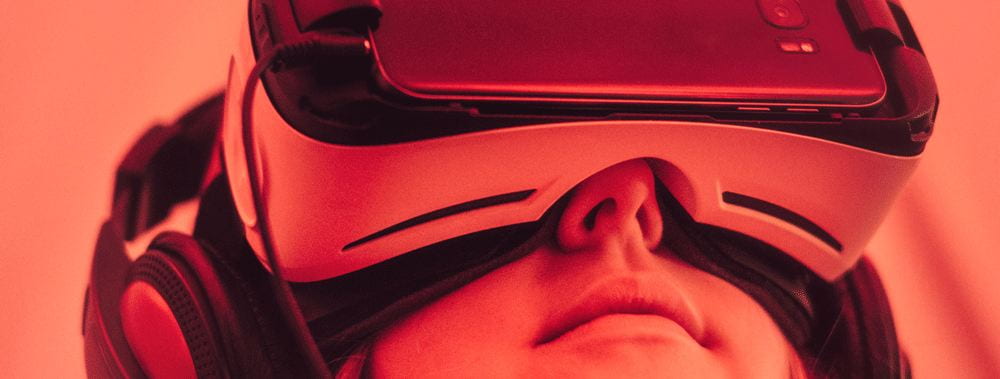
Augmented Reality and Virtual Reality Projects at Northeastern
We hear about Augmented Reality and Virtual Reality in gaming and entertainment spheres, but how much do you know about AR/VR projects conducted and in progress at Northeastern University? This session’s panelists will provide an overview of projects they have been working on and how they got started in VR/AR. Jason Duhaime and Jamal Thorne will provide a look at some of the projects happening in CAMD’s VR/AR lab and CAMD’s plans to bring more AR/VR projects to the university. Martin Dias of DMSB will address his project in the works related to interpersonal communication. Danielle Levac will discuss her work as Director of the Rehabilitation Games and Virtual Reality Lab. Information will be provided about how to get started with VR or AR projects at Northeastern.
Moderator: Kwong Chan, D’Amore-McKim School of Business
Panelist: Jason Duhaime, College of Arts, Media, and Design
Panelist: Jamal Thorne, College of Arts, Media, and Design
Panelist: Martin Dias, D’Amore-McKim School of Business Link to slides
Panelist: Danielle Levac, Department of Physical Therapy, Movement & Rehabilitation Science Link to slides
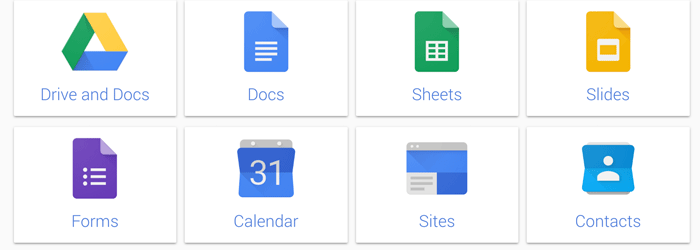
Feedback Session: Student Collaboration and Engagement with Google for Faculty and Staff
Teamwork and collaboration is essential throughout the university in every facet. To meet students where they are and provide more expansive collaboration opportunities, Northeastern is piloting faculty and staff access to Google Suites for Education, with plans to pilot Google Classroom for students in the future. This panel will provide information on the current pilot and serve as an opportunity to offer your feedback on Google services.
Moderator: Megan Perkins, Office of Information Security
Panelist: Clair Waterbury, Academic Technology Services
Panelist: Chris Carrillo, Academic Technology Services
Panelist: Michael LaBollita, Customer Services
Lunch and Technology Expo
11:25a – 12:00p
Get lunch and connect with your colleagues.
ISEC 140
12:00p – 12:30p

TEXPO DIGITAL POSTER SESSION
Visit the digital poster session to get a closer look at projects in progress.
Using multimedia and hypothesis-based approaches in the biotechnology laboratory to enhance student learning.
Presenter: Jean-Francois Hamel, College of Professional Studies; Secondary author/researcher: Nidhi Thakar, Former student, Currently with Casebia Therapeutics
Ever thought of creating an e-text? Lessons I have learned.
Summer 2017 I developed an e-book for use in teaching General Chemistry for Engineers, a one-semester course in General Chemistry, for which there are only two published textbooks available. Each of these textbooks was problematic in its own way—one had no problems and insufficient explication. The other text was error ridden. Neither has been well received in use at Northeastern. I leveraged Microsoft OneNote so the product could be used on Macs, PCs, cell phones, and iPads. With help from Northeastern Academic Technology Services, I obtained access to Microsoft Classroom, a LMS used widely in high schools and at some universities (e.g., Duke U.). Quizzes were developed and deployed using Microsoft Forms. I will share some important considerations anyone interested in developing an e-textbook would be wise to consider before undertaking a similar effort.
Presenter: Pam Mabrouk, Chemistry and Chemical Biology
Best tablets and apps for naturally-active learning presentations.
Writing tablets enable faculty to increase student engagement during lectures. With the right hardware and software tools it is easy to prepare active learning lectures with flexibility to adapt to student questions. Recommended apps are discussed after this year’s experience with the iPad Pro and Surface Pro tablets.
Presenter: Steve Lustig, Chemical Engineering
Creating an interactive asynchronous learning environment in hybrid language courses.
Providing students effective interactive asynchronous e-learning tools in online and hybrid courses is essential but challenging. The use of Storyline, VoiceThread, and Light Board in a hybrid elementary Japanese course enhanced the learning experience of beginner students.
Presenter: Kumiko Tsuji, World Languages Center
Rxscape the room.
Stimulation of student engagement in learning and knowledge application, as well as team building and collaboration were explored through development of an escape the room activity to determine the value of game based learning in the pharmacy curriculum.
Presenter: Mike Gonyeau, Pharmacy and Health Systems Sciences
Customizing your own interactive class materials with Rise.
Sometimes what you want as a professor to bring the content to life and engage the students cannot be found in a textbook. Teach your course your way. Create your own interactive class materials in Rise that can be used in face-to-face, hybrid and online courses.
Presenter: Christina Agostinelli-Fucile, World Languages Center
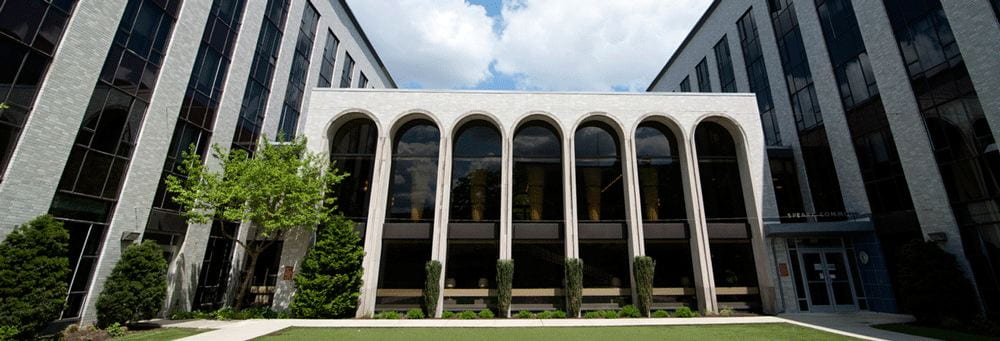
USING ACADEMIC TEACHING TECHNOLOGIES TO ENHANCE EDUCATIONAL, ADMINISTRATIVE, INFORMATIONAL AND COMPLIANCE-RELATED TRAINING PROGRAMS
Blackboard, Tegrity, Storyline, Playposit, Lynda.com, and Poll Everywhere are common technologies used in teaching and learning at Northeastern, but they’re also useful technologies for staff who work with faculty, students, and other employees across the university community. This panel will address the use of academic technologies in several administrative offices at the university including Environmental Health and Safety, Human Resources Management, and Research Administration, Finance, and Compliance Office. Hear about how these offices select and use various teaching and learning tools for their training needs. Samples will be demonstrated at different stages of development.
Moderator: Lindsey Sudbury, Academic Technology Services
Panelist: Joan Cyr, Research Administration Link to slides
Panelist: Jamie Tessler, Office of Environmental Health and Safety Link to slides
Panelist: Amber Kestner, Human Resources Management – Learning & Development Link to slides
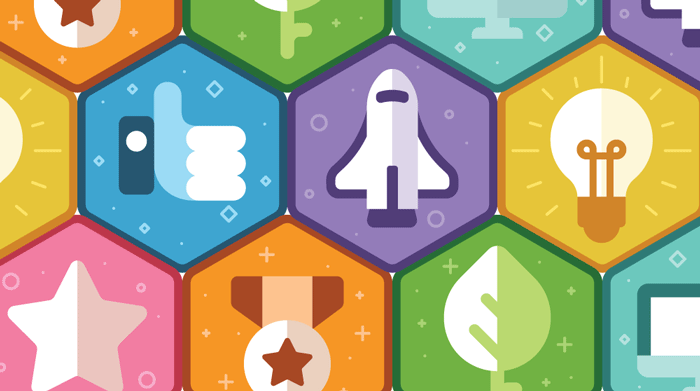
BADGING IN THE UNIVERSITY CONTEXT
Beyond the walls of higher education, thousands of businesses, industry associations, government agencies and organizations are eager to find and hire candidates who possess skillsets aligned to their needs. Digital badges offer a promising solution for enabling learners to showcase specific, industry-validated skillsets gained and/or honed through a variety of learning experiences. Academic support staff in CPS, PAN and DMSB and a faculty member teaching a biotech workshop will talk through their experience in the University’s badging pilot and discuss the future of badging at Northeastern.
Moderator: Beth Rochefort, Online Experiential Learning Programs
Presenter: Allison Ruda, Professional Advancement Network
Presenter: Jared Auclair, Biotechnology, College of Science
Presenter: Lars Sorenson, D’Amore-McKim School of Business
Presenter: Beth Rochefort, Online Experiential Learning Programs
1:50p – 3:00p

TECHNOLOGY IN EXPERIENTIAL AND NON-ACADEMIC EDUCATIONAL PROGRAMS
Many faculty and staff use academic technologies outside of the traditional classroom. In this panel, you’ll hear faculty and staff from CCIS co-op, the GEO office, and Sports Performance who rely on a mix of academic and business technologies to stay connected with their students and the wider Northeastern community.
Moderator: Clair Waterbury, Academic Technology Services
Panelist: Paco Mesch, CCIS Co-op Link to slides
Panelist: Mike McKenney, Northeastern University Sports Performance Link to slides
Panelist: Emilia Larach, Global Experience Office Link to slides
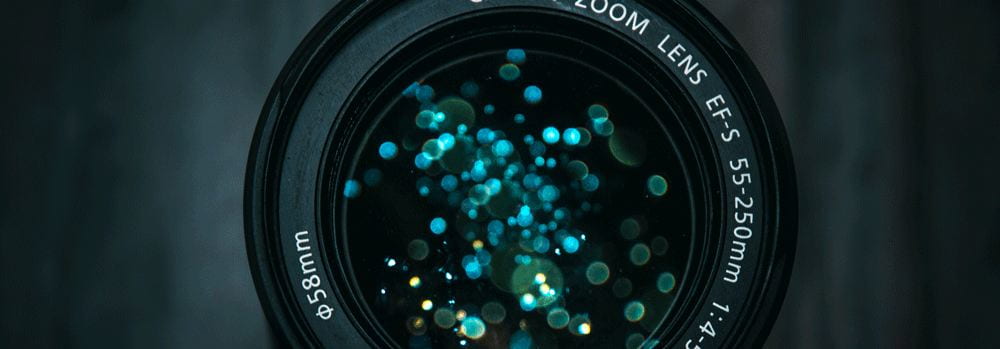
DIGITAL STORYTELLING
Storytelling has been a common method of teaching since its beginning. Stories help students make sense of complex and confusing concepts and experiences. Although storytelling is not new, the methods of creating, delivering and accessing stories is. This session will discuss digital storytelling – designing stories for today’s various digital devices and how they can be crafted and applied to teaching and learning. An overview of how storytelling benefits students and faculty, and the variety of production methods and resources available at Northeastern will be presented.
Moderator: Jesse Savage, Academic Technology Services
Panelist: Terry Beadle, Academic Technology Services
IMAGE CREDITS
“Virtual Reality” Photo by Samuel Zeller on Unsplash
“Camera Lens” Photo by Dollar Gill on Unsplash
“Drawing Doodles” Photo by rawpixel.com on Unsplash
“Speare Hall” Photo by Brooks Canaday
“Badges” by Allison LaMotte
Last year’s schedule and recordings available on the TEXPO 2017 page.
